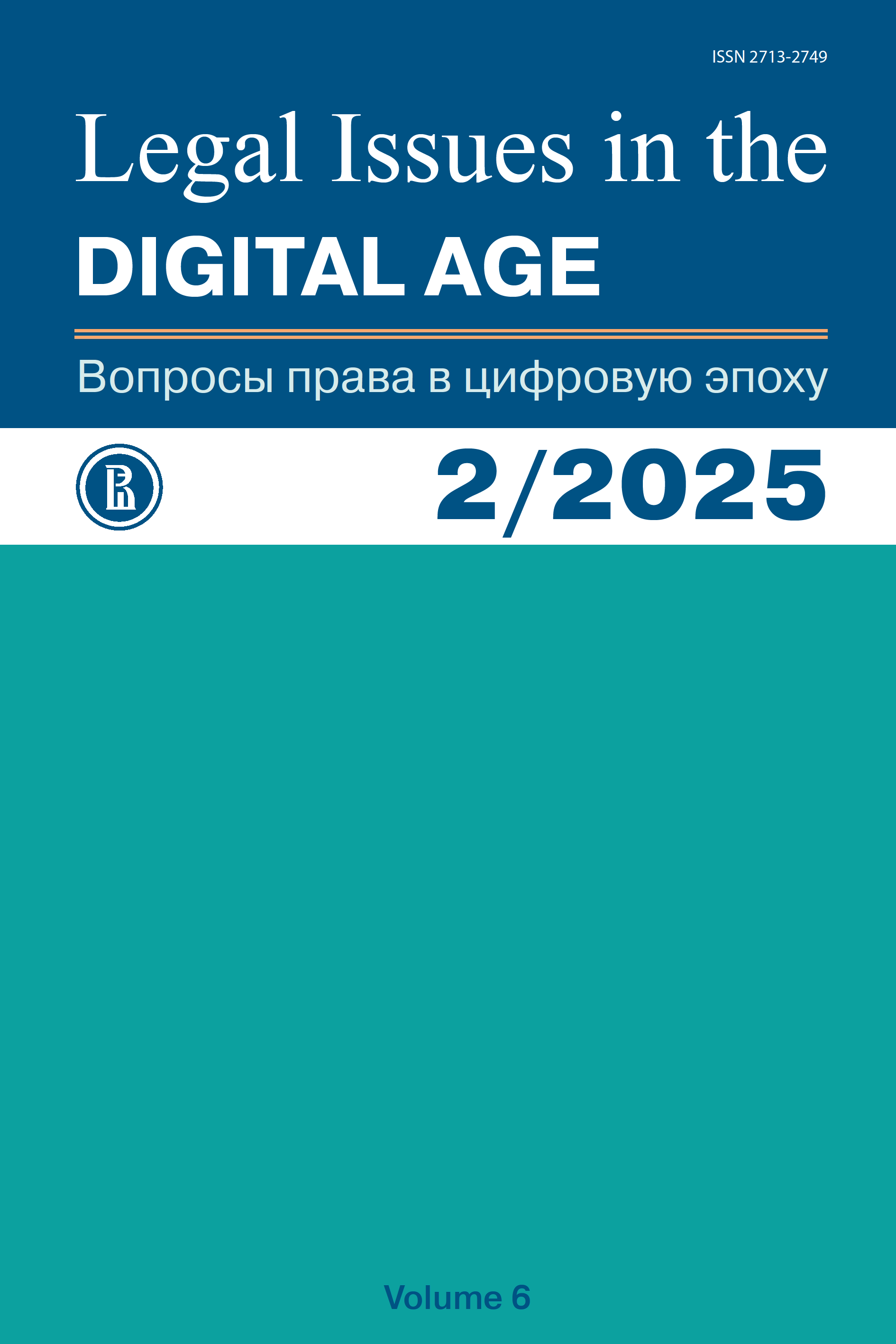Trust in Artificial Intelligence: Regulatory Challenges and Prospects
Аннотация
The last few years have witnessed a rapid penetration of artificial intelligence (AI) into different walks of life including medicine, judicial system, public governance and other important activities. Despite multiple benefits of these technologies, their widespread dissemination raises serious concerns as to whether they are trustworthy. The article provides an analysis of the key factors behind public mistrust in AI while discussing ways to build confidence. To understand the reasons of mistrust, the author invokes the historical context, social study findings as well as judicial practices. A special focus is made on the security of AI use, AI visibility to users and on decision-making responsibility. The author also discusses the current regulatory models in this area including the development of universally applicable legal framework, regulatory sandboxes and self-regulation mechanisms for the sector, with multidisciplinary collaboration and adaptation of the effective legal system to become a key factor of this process. Only this approach will producer a balanced development and use of AI systems in the interest of all stakeholders, from their vendors to end users. For a more exhaustive coverage of this subject, the following general methods are proposed: analysis, synthesis and systematization; special legal (comparative legal and historic legal) research methods. In analyzing the available data, the author argues for a comprehensive approach to make AI trustworthy. The following hypothesis is proposed based on the study’s findings. Trust in AI is a cornerstone of efficient regulation of AI development and use in various areas. The author is convinced that, with AI made transparent, safe and reliable one, provided with human oversight through adequate regulation, the government will maintain purposeful collaboration between man and technologies thus setting the stage for AI use in critical infrastructures affecting life, health and basic rights and interests of individuals.
Литература
Barfield W., Pagallo U. (2018) Research Handbook on the Law of Artificial Intelligence. Northampton: Edward Elgar, 736 p.
Efremov A.A. (2019) Experimental Legal Regimes for Digital Innovations: International Experience and Domestic Prospects. Informatcionnoe pravo=Information Law, no. 3, pp. 21–23 (in Russ.)
Efremov A.A. (2022) Experiments in Public Administration: Aspects of Delivery and Efficiency. Gosudarstvennaya sluzhba=Public Service, vol. 24, no. 1, pp. 19–28 (in Russ.)
Ethics and Law. Relationship and Mechanisms of Mutual Influence (2023). Monograph. Ed. by V.A. Vinogradov. Moscow: Prospekt, 272 p. (in Russ.)
Global Atlas of AI Regulation (2023) Ed. by A.V. Neznamov. Moscow: no publisher, 308 p. (in Russ.)
Janssen M., Kuk G. (2016) Challenges and Limits of Big Data Algorithms in Technocratic Governance. Government Information Quarterly, vol. 33, pp. 371–377.
Jian J.-Y., Bisantz A. M., Drury C. G. (2000) Foundations for an Empirically Determined Scale of Trust in Automated Systems. International Journal of Cognitive Ergonomics, vol. 4, no. 1, pp. 53–71.
Jones K. (1996) Trust as Affective Attitude. Ethics, vol. 107, no. 1, pp. 4–25.
Kokotov A.N. (2020) Trust. Mistrust. Law. Moscow: Norma, 192 p. (in Russ.)
Kupreychenko A.B. (2008) Psychology of Trust and Mistrust. Moscow: Kogito-Center, 739 p. (in Russ.)
Leshkevich T.G. (2023) The Paradox of Trust in AI and its Justification. Filosofiya nauki i tekhniki=Philosophy of Science and Technology, vol. 28, no. 1, pp. 37–47 (in Russ.)
O’Neil C. (2016) Weapons of Math Destruction: how Big Data Increases Inequality and Threatens Democracy. New York: Crown Publishers, 209 p.
Stepkin S.P. (2023) The Concept of “Trust” in Modern Constitutional Law: Emergence, Prospects of Development and Assessment. Aktualnye problemy rossiyskogo prava=Urgent Issues of Russian Law, vol. 18, no. 10, pp. 30–44 (in Russ.)
Vinogradov V.A. (2023) Legal Aspects of Development of AI Systems. Zakon=Pravo, no. 12, pp. 157–166 (in Russ.)
Vinogradov V.A., Kuznetsova D.V. (2024) Deep Fake Technology: International Regulatory Experience. Pravo. Zhurnal Vysshey shkoly ekonomiki=Law. Journal of the Higher School of Economics, vol. 17, no. 2, pp. 215–240 (in Russ.)
Copyright (c) 2025 Vashurina S.S.

Это произведение доступно по лицензии Creative Commons «Attribution-ShareAlike» («Атрибуция — На тех же условиях») 4.0 Всемирная.
Авторы, присылающие рукописи для рассмотрения к публикации в Журнале, принимают Политику лицензирования, авторских прав, открытого доступа и использования репозиториев.







